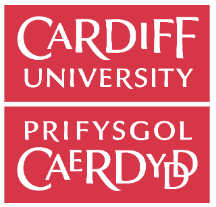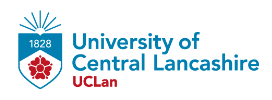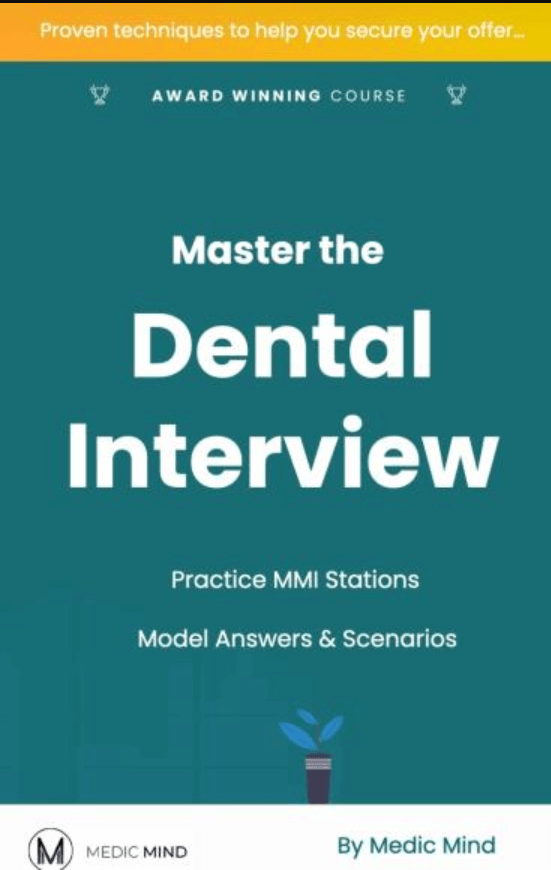Loading...


Dental Hygiene and Therapy degree in the UK
Which Dental School is right for you?
Birmingham

The University of Birmingham is a city-based campus and is ranked 14th for Dental Hygiene and Dental Therapy in the UK. Birmingham Dental Hospital is based at Pebble Mill, around a mile from the University’s central campus. The degree at this university is more traditional because there are more lectures and contact hours for clinical practice compared to other courses that may prioritise more independent learning. If you are someone who likes the practical, kinesthetic side of learning, Birmingham is perfect for you!
Birmingham has excellent transport links, so you have a reliable service, especially if you have travelled far from home.
Keep in mind that you get to enjoy early contact with patients in your first year at Birmingham University, lending you brilliant opportunities to gain practical skills. This early experience will prepare new students for seeing their first patients during the second term of the first year.
The social aspect at Birmingham university is great. There are many clubs, restaurants, cafes and activities to go and explore. One of the nice things to do at Birmingham is take a stroll along Birmingham canal as well as explore the city centre and visit the secret garden at the Birmingham library.

Modules in the first year
- Dental Hygiene Clinical Practice
- Biomedical Sciences
- Introduction to Adult Restorative Dentistry
- Professionalism
- Dentistry in Society
- Oral Health Promotion and Education
Modules in the second year
- Adult Restorative Dentistry Theory and Clinical Practice
- Periodontal Diseases Theory and Clinical Practice
- Paediatric Dentistry
- Applied Pharmacology and Pain and Anxiety Control
- Dental Radiography
- Professionalism Portfolio
Modules in the third year
- Integrated Clinical Practice
- Research Project
- Professionalism Portfolio
Head over to the university website for more information on the modules and structure.
King’s College London (KCL)

KCL is a competitive university and is ranked 12th for Dental Hygiene and Dental Therapy in the UK. However, KCL is more academic than practical and requires a lot of independent studies. At KCL, students have the privilege of reading under the authors of some of the most popular dental-focussed academia. This can be a great advantage if you are looking to follow the course with a masters and then go into research and teaching as you will be learning from the experts themselves.
The course is intense, with less free time as the year goes on. Eventually, you will become accustomed to it and figure out days where you can have your downtime and enjoy what London offers. There are many student-friendly pubs, bars and clubs, as well as a plethora of activities offered in the city.
KCL is not a stereotypical campus, as it is a City-Centric university. KCL offers excellent areas to study,, like The Maughan Library and The British Library, a public library. There is something for everyone, no matter your interests at KCL. Just remember that London is an expensive area, so think about your finances before applying.
Even though London is expensive, there are always ways around it, as they do have a range of accommodation and have fantastic transport links and bus services that fit your budget, so make sure you visit London first to see if this is the right university for you.
Modules in the first year
- Biomedicine in Relation to Dentistry 1
- Biomedicine in Relation to Dentistry 2
- Clinical Humanities & Wellbeing
- Dentistry in Society
- Introduction to Clinical Skills
- Student Selected Component
Modules in the second year
Second-year at KCL is more clinical and practical-based. The modules in second year include:
- Clinical Humanities and Wellbeing III
- Dentistry in Society III
- Simulated Clinical Practice III
- Human Health and Disease II
- Restoration and Maintenance of Adult Oral Health II
- Restoration and Maintenance of Child and Vulnerable Adults Oral Health II
- Student Selected Component
Modules in the third year
- Clinical Humanities and Wellbeing II: Observation, advocacy, justice
- Dentistry in Society II
- Simulated Clinical Practice II
- Human Health and Disease I
- Restoration and Maintenance of Adult Oral Health I
- Restoration and Maintenance of Child and Vulnerable Adults Oral Health I
- Student Selected Component
Plymouth

If you are not a busy city person and enjoy more of the country lifestyle, then Plymouth is the university for you; it is ranked 1st for Dental Hygiene and Dental Therapy in the UK. Plymouth is a small city, meaning everything you could ever need is right on your doorstep. Therefore, it’s easy to find your way around quickly. Plymouth has great transport links so if you have moved far from home, it is easy enough to get back, by train, coach or road.
Plymouth offers early exposure to clinical environments, clinical skills and practice, and treating patients early on. They offer:
- Phantom head practice in week 1
- Clinical induction beginning in February, learning clinical skills
- Start to see your first patients in March of the first year
Once qualified, you have gained as much clinical experience as possible, making you feel more confident as a Dental healthcare professional going into a Dental practice.
Furthermore, at Plymouth University, you begin to practice using dental instruments, in the first week of university, giving you a real insight into what you will be doing during the three years of your course.
The first year of the course will be integrated with the BDS Dentistry students. This is a great way to make friends for life, and you will realise that you will learn so much from each other. There are around 20 Dental Hygiene and Therapy students per intake. For some, this is great as you get more time with the teacher and get to know each other better as you are only a small group, meaning you will have a better experience, support, help, and build friendships.
In the first year, Plymouth will be just as full-on and intense as all the other universities. However, Plymouth’s first year focuses on introducing students to a range of activities, like:
- Evidence-Based Learning
- Practical skills
- Community Engagement
- Seeing patients and gaining vital clinical experience
Modules in the First year
- Integrated Dental Science
- Clinical Dental Practice
- Professional Development
- Inter-Professional Engagement
Modules in the Second year
- Applied Dental Therapy Knowledge
- Developing Clinical Practice
- Dental Therapy Professional Development
- Inter-Professional Engagement
Modules in the Third year
- Applied Dental Therapy Knowledge
- Proficient Clinical Practice
- Dental Therapy Professional Development
- Inter-Professional Engagement: Quality Improvement
University of Essex

Essex FdSc Oral Health Science, a 2-year degree for Dental Hygiene, is based at the Southend-on-Sea campus, in the central part of Essex; therefore, you aren’t far from shops, supermarkets, clubs, cinemas and many others. You have everything on your doorstep. The course layout is simple yet effective and gives early exposure to seeing patients. As part of the early exposure, you are given a placement every term, this gives students confidence for the real world earlier on and prepares them for when they finish university.
Essex university also offers one year of Dental Therapy, so for the hygienists that want to progress and give Dental Therapy a go and gain another skill, it is provided.
Modules in the first year
- Personal effectiveness
- Clinical governance and patient safety
- Biomedical and psychosocial science for dental practice
- Health policy, law and ethics
- Introduction to oral health and disease
- Promotion of oral health and prevention of oral disease
- Development of practical skills I
Modules in final year
- Health, illness and disease for dental practice
- Critical appraisal and research skills for dental practice
- Management of oral disease
- Special needs
- Development of practical skills II
Cardiff University

Cardiff University offers two relevant pathways into a career in Dental Hygiene and Therapy – Dental Hygiene (2 years) or Dental Hygiene and Therapy (3 years). Cardiff is the only Dental School in Wales and is ranked 13th for Dental Hygiene and Dental Therapy in the UK. Cardiff has fantastic facilities and offers a simulation suite, which will prepare students for the delivery of dental care to patients in clinics.
Cardiff is a vibrant and beautiful city, and provides a great student experience, with many cafes, bars, restaurants, cinemas and great sea views. The student satisfaction rate is an incredible 80%, and 100% of students agree that the teaching and learning are fantastic.
Cardiff offers a full NHS bursary, including tuition fees and non-repayable bursaries for living costs, which is available for BSc Dental Therapy and Hygiene students and DipHE Dental Hygiene students.
This course provides early exposure to seeing patients early and helps you gain experiences as early as possible ready for the second year, which will be more practical and clinical based.
Modules in the first year
- Biomedical Sciences
- Human Diseases
- Oral Diseases and their Prevention
- Dental Radiography (Year 1)
- Introduction to Clinical Dentistry (DipDH)
- Clinical Practice Year 1 (DipDH)
Modules in the second year
- Dental Radiography and Radiology 2
- Patient Management
- Dental Public Health
- Oral Medicine and Oral Pathology
- Periodontology Clinical Practice
- Adult Restorative Clinical Practice
Modules in the third year
- Research Project
- Paediatric Clinical Practice
- Preparation for Practice
- Adult Clinical Practice
Portsmouth University

Portsmouth is a small city university with everything nearby, like supermarkets, shops, and excellent public transport links. Portsmouth is a small, lively city. The city centre is around a 20–30-minute walk away from Portsmouth beach, which is fantastic in the summer for morning swims and to relax, as well as arcades and a huge outlet shopping mall.
Portsmouth’s first year recommends that you do around 35 hours of studying a week for the degree. The first year consists of activities like:
- Tutorials
- Lectures
- Practical classes, like clinical skills
- Workshops
- Guided independent study
At Portsmouth university, they also have student dental nurses and qualified dental nurses who will support you throughout your three years at university.
Portsmouth doesn’t host BDS, only Dental Hygiene and Dental Therapy, meaning that the university focuses more on the Hygiene and Therapy degree.
Modules in Year 1
- Core Skills Training Framework
- Foundation of Evidence Based Practice
- Foundations of DHDT Professional Practice
- Fundamentals of Dental Hygiene & Therapy Practice
- Science Informing Practice
Modules in Year 2
- Applied Dental Hygiene & Therapy Professional Practice
- Communication for the Dental Team
- Core Skills Training Framework Repeat
- Dental Radiography and Dental Imaging
- Engaging with Service Improvement
- Evidence Based Decision Making
Modules in Year 3
- Behaviour Management
- Core Skills Training Framework Repeat
- Enhancing Dental Hygiene & Therapy Professional Practice
- Leading Safe and Effective Care
- Project
University of Sheffield

The University of Sheffield has a different start date than other universities and you apply to their university internally through their university website, not via UCAS. It is ranked 10th in the UK for Dental Hygiene and Dental Therapy.
Sheffield is another small city and campus, with everything you will need only within walking distance.
Your first year at Sheffield university entails:
- Developing an understanding of anatomy and physiology in relation to dentistry
- The following month, you will begin clinical skill training, which will prepare you for when you see your first patients. You will also come to grips with the different dental instruments. Alongside this, you will help assist in clinical practice to help build your confidence and communication skills within a clinical environment.
- You will also understand other subject areas, like ethics, professionalism, health promotion and education and oral disease.
Overall, first-year for students at Sheffield University will be a great experience, and it is very similar to other universities. However, you will finish university earlier, as you start in April instead of September.
Sheffield is ranked 10th in the UK for Dentistry and has fantastic student satisfaction rates. There is also a virtual simulation suite where you get to practice treatments on a 3D vertical reality machine.
Modules in Year 1
- Study Skills and Personal Development
- Dental Foundation
- The Human Body in Health and Disease
- Law, Ethics and Professionalism
- Pre-Clinical Skills I
- Health Promotion and Education I
- Clinical Practice
- Oral Disease I
- Pre-Clinical Skills II
- Pre-Clinical Skills III
- Health Promotion and Education II
- Dental Radiography
Modules in Year 2
- Clinical Practice
- Dental Radiography
- Health Promotion and Education III
- Outreach
- Oral Disease II
- Principles of Practice
Modules in Year 3
Currently, third year learning and teaching is a continuation of their second year themes.
University of Central Lancashire

The University of Central Lancashire is based in Preston and is ranked 16th in the UK for Dental Hygiene and Dental Therapy. The unique aspect of the University of Central Lancashire is the fact that there is integration between 3 different courses, which are the BDS Dental students, Dental Hygiene and Therapy and Dental Technology students. The university also provides 50/50 based learning of theory and practical, which is a great way to balance and change things up, as all theory-based work can become very intense.
The campus is just a short walk away from Central Lancashire university. you have everything on your doorstep, such as shops, supermarkets, cafes, restaurants, bars and pubs, and public transport, like buses and trains. If you are a student that likes to live on a budget, then Preston is known for being the cheapest place to live in the UK!
At Central Lancashire, you can gain early patient contact alongside your studies, therefore giving you the best possible experience and skills needed for seeing patients throughout the rest of your three years at university.
Modules of Year 1
- Foundation Clinical Skills
- Foundation Clinical Knowledge
- Pre-clinical Dental Sciences
- Foundation of Professional Practice
- Clinical Skills 1
- Clinical Knowledge 1
Modules of Year 2
- Health Promotion and Population studies Part 1
- Oral Disease and Integrated Practice
- Professional Practice 1
- Clinical Skills 2
- Clinical Knowledge 2
Modules of Year 3
- Health Promotion and Population studies Part 2
- Professional Practice2
- Enhanced Clinical Practice
- Dissertation
University of Bristol

The University of Bristol is a city campus, it is small, and everything is close by and is ranked 9th in the UK for Dental Hygiene and Dental Therapy. The Dental hospital (based at Clifton Campus) and other facilities are right in the heart of Bristol. The Dental school is a 10–15-minute walk from the rest of the campus, and there is always a buzzing atmosphere. Bristol is a vibrant and outgoing city that provides everything at your doorstep.
The three years at Bristol University will consist of integrated and compulsory academic learning and teaching units, clinical skills and practice, and a dissertation.
Clinical skills will begin in term 1 of first year. Throughout clinical skills, you will gain experience in and learn:
- Patient Assessment and Indices (including dental charting)
- Periodontal Instrumentation and techniques
- Stain Removal
- Pain and Anxiety control
- Medical Emergencies
- Decontamination procedures
Bristol is an academic course, therefore consisting of summative and formative exams/assessments, which can make your university experience intense, especially in the first year.
Bristol is a fantastic university, and being small and having everything close by makes it very convenient and a reasonably cheap university for those on a budget but who also want to have a great social life.
Overall, Bristol is a great university and is a friendly, energetic city with something for everyone – great music, intriguing places to eat and drink, a terrific selection of shops, restaurants, bars and pubs, and over 450 parks and open spaces, which gives Bristol the title of the “green city.”
Course structure
Each year comprises of four units:
- Foundations for Practice
- Clinical Skills
- Clinical Practice
- Personal and Professional Development
Overall, when it comes to deciding which university you want to attend, this can be a very difficult decision. Deciding which university you want to spend your 3 years of studying at, will be determined by many factors, which is why it is important to do your research and compare universities. One piece of advice I will give any student who is trying to decide which university is to attend the university’s opening days, and ask questions, especially current students and about the course modules, structure, student satisfaction, support, facilities and about the university itself.
Frequently Asked Question
→What is a Dental Hygiene and Therapy degree?
A Dental Hygiene and Therapy degree is a type of undergraduate degree program that prepares students to work as dental hygienists and therapists. It typically includes a combination of classroom instruction, laboratory work, and clinical experience, and covers topics such as dental anatomy and physiology, oral pathology, dental radiography, and preventive dentistry.
→What are the admission requirements for a Dental Hygiene and Therapy degree program in the UK?
Admission requirements for Dental Hygiene and Therapy degree programs vary depending on the university and program, but typically include a minimum of five GCSEs at grade C or above (including English and maths), and two A-levels (or equivalent) at grade C or above in science subjects.
→What is the duration of a Dental Hygiene and Therapy degree program in the UK?
Most Dental Hygiene and Therapy degree programs in the UK are three years in duration when studied full-time.
→What career opportunities are available with a Dental Hygiene and Therapy degree?
With a Dental Hygiene and Therapy degree, graduates can pursue a career as a dental hygienist or dental therapist. They may work in private dental practices, hospitals, community health centers, or public health settings.
→Are there any professional organizations for dental hygienists and therapists in the UK?
Yes, there are several professional organizations for dental hygienists and therapists in the UK, including the British Society of Dental Hygiene and Therapy, the British Association of Dental Therapists, and the Dental Hygienists’ Association. Membership in these organizations can provide networking opportunities, continuing education, and other professional resources for dental hygienists and therapists.
→What is the salary range for dental hygienists and therapists in the UK?
The salary range for dental hygienists and therapists in the UK varies depending on factors such as experience, location, and employer. According to the National Careers Service, newly qualified dental hygienists and therapists can expect to earn between £22,000 and £28,000 per year, while experienced professionals can earn up to £40,000 per year or more.





Was this article helpful?
Still got a question? Leave a comment
Leave a comment